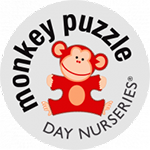Research shows that parents are receiving conflicting advice about when to start weaning their child, leaving many feeling confused about what to do. Blenders, bibs and sticky highchairs are all part of this world, along with some babies who seem quite uninterested. Advice about when to start, what to give and even which method to follow abounds.
A survey of 1000 parents with children aged 3 to 18 months found:
- Three in five first time parents found the decision to start weaning confusing.
- Almost 2/3 received conflicting advice on what age to start introducing solid food.
- 40% of first-time mums introduced solid food by the time their baby was five months old, despite advice from the NHS that you should not start weaning until a child is 6 months old.
With this in mind, we look at the key points to get right when weaning.
A good starting point is to understand that weaning is not so much getting babies off milk but introducing new foods. Foods other than milk will provide your child with iron and other nutrients that are vital for continued growth.
The health advice is quite clear. Aim to win at six months. This is at the point at which most babies now need the additional iron that comes from eating a wider diet and importantly, the point at which their digestive system can cope. This unanimous advice came in 2001 after much medical research, but the advice is still not widely known. This may mean that you find people out there who will tell you to start weaning earlier. You may also hear that you should start to wean if your baby has started waking in the night or seem very hungry. If this is happening, speak to your health visitor so that you can get up to date and informed advice about the possible next steps.
